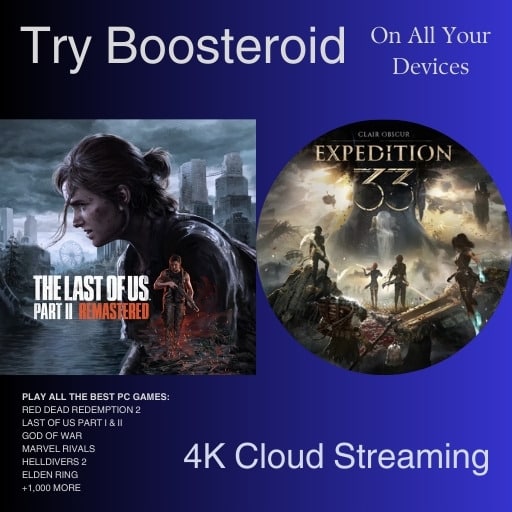
In an unprecedented move that has sent shockwaves through the gaming industry, PlayStation and Firewalk Studios announced today the unexpected and imminent shutdown of their highly anticipated live service game, Concord. This decision, coming mere months after the game’s launch, marks a startling departure from traditional game lifecycle management and raises pressing questions about the future of live service games.

About Concord
Concord, developed by Firewalk Studios and published by PlayStation, is a 5v5 online first-person shooter set in a vibrant sci-fi universe. Players assume the role of Freegunner space outlaws, teaming up with friends to take on rival crews across the galaxy. The game features 16 unique characters, each with different abilities and play styles, ranging from powerful mystics to skilled gunslingers and helpful healers.
The game launched on August 23, 2024, for PS5 and PC, with a beta available in July. Despite its promising premise, Concord struggled to amass player engagement and faced significant challenges in a highly competitive market.
Concord’s Promising Start Cut Short
Concord launched with considerable fanfare earlier this year. The game promised an innovative blend of competitive multiplayer action set against a backdrop of interstellar exploration. Initial reception seemed positive, with players praising the game’s visual fidelity and unique setting aboard the starship Northstar.
However, beneath the surface, troubling currents were stirring. Ryan Ellis, Game Director at Firewalk Studios, acknowledged in today’s announcement that “while many qualities of the experience resonated with players, we also recognize that other aspects of the game and our initial launch didn’t land the way we’d intended”.
This candid admission hints at deeper issues that have plagued the game since its release. Industry insiders speculate that a combination of technical difficulties, content shortfalls, and fierce competition from established titles in the genre may have contributed to Concord’s struggles.
An Unprecedented Decision
The decision to take Concord offline permanently is virtually unheard of for a major release, especially one backed by an industry giant like PlayStation. Even more surprising is the comprehensive refund policy accompanying the shutdown.
“We have decided to take the game offline beginning September 6, 2024, and explore options, including those that will better reach our players,” Ellis stated. “Concord sales will cease immediately, and we will begin to offer a full refund for all gamers who have purchased the game for PS5 or PC”.

This move sets a new precedent in the industry, where refunds for digital purchases are often limited by time or playtime constraints. The decision to offer blanket refunds across all platforms – including physical copies – is a logistical challenge of staggering proportions.
Financial Fallout and Industry Implications
The financial implications of this decision are significant. While exact figures for Concord’s development and marketing budgets haven’t been disclosed, AAA game production costs typically range from $50 million to over $200 million. Marketing expenses often match or exceed these figures.

Analysts estimate that the combination of development costs, marketing expenses, and now widespread refunds could result in losses running into hundreds of millions of dollars for Sony. This financial hit comes at a time when the company is already facing increased competition in the gaming space.
Michael Pachter, an analyst at Wedbush Securities, commented, “The decision to pull Concord from the market is a significant move by Sony, reflecting the high stakes and rapid changes in the gaming industry. This will likely lead to a reevaluation of how new games are launched and supported post-release”.
The ripple effects of this decision extend far beyond Sony’s balance sheet. It raises serious questions about the viability of the live service model, especially for new intellectual properties. Will publishers be more hesitant to greenlight such projects in the future? Could we see a shift back towards more traditional, self-contained game experiences?
Logistical Labyrinth of the Refund Process
The process of refunding every purchase of Concord presents a logistical challenge of unprecedented scale in the gaming industry. PlayStation has outlined different procedures for various purchase channels:
- PlayStation Store and PlayStation Direct: Purchases will be automatically refunded to the original payment method.
- Steam and Epic Games Store: Refunds will be processed over the coming days, with customers being contacted directly.
- Physical Copies: Purchases from other retailers will require players to follow specific instructions provided by Sony.
Ensuring all players receive their refunds promptly will be a significant undertaking for Sony’s customer support teams. The scale of this operation is comparable to other large-scale refund events in the gaming industry, such as the Cyberpunk 2077 refunds, though Concord’s policy is even more comprehensive.
Impact on Player Trust and Community
The abrupt shutdown of Concord has sparked a wave of reactions from the gaming community. On social media and forums, players have expressed a mix of disappointment, frustration, and appreciation for Sony’s transparency and refund policy. Common themes include concerns about the future of live service games and scepticism about pre-ordering new titles.
The long-term effects on player trust in live service games could be significant. Developers may need to work harder to build and maintain player trust through consistent updates and transparent communication. Additionally, players may become more hesitant to pre-order or purchase games on day one, opting to wait for reviews and community feedback. This shift in behaviour could impact initial sales figures and influence marketing strategies for future releases.
Regional Market Analysis
The impact of Concord’s shutdown may vary across different regions, depending on the game’s popularity and player base. In regions where live service games are less popular, the shutdown may have a smaller impact on the market. However, in North America and Europe, where player reactions have been more vocal, the effects could be more pronounced.
Sarah Bond, Corporate Vice President at Xbox, remarked, “Concord’s shutdown highlights the volatility in the gaming industry, especially for new titles. It’s crucial for developers to stay agile and responsive to player feedback to succeed”.
The shutdown could affect PlayStation’s market position in key territories, particularly if players lose trust in the brand’s ability to support live service games. Sony may need to invest in rebuilding player trust and demonstrating a commitment to high-quality, sustainable gaming experiences.








